Data protection standards
Filter resources
-

Targeted Online: How Big Tech’s business model sells your deepest secrets for profit
Surveillance-based advertising which is currently the business model used by Google, Facebook and many others is harmful to people and to society as a whole because it encourages the spread of disinformation. It's also bad for the media who lose control of their ad space and suffer from decreasing revenue as a result.
Read more
-

Booklet: Surveillance-based advertising: An industry broken by design and by default
Most online advertising today relies on huge amounts of personal data extracted from people without their knowledge. EDRi’s new guide book “Targeted Online” sheds light on this opaque data industry and explores how EU law should regulate it. This is the first blog post in a new series dedicated to the EU’s proposed Digital Services Act and Digital Markets Act.
Read more
-

ePrivacy strikes back
“And when we woke up, the ePrivacy Regulation was still there”, could be the EU bubble version of the famous micro-tale. Four years after the main text protecting privacy and confidentiality of people in the EU was proposed, Member States have finally given the green light to finalise the adoption. But, where will this lead us?
Read more
-
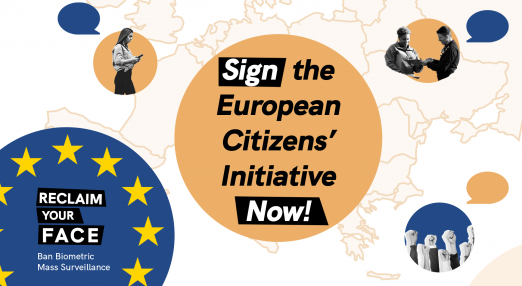
ECI: putting people’s voices before corporate greed
On 17 February 2021, EDRi with a coalition of 40 human rights and social justice groups launched a unique, officially-recognised EU petition, called a “European Citizens’ Initiative” (ECI). Here, we explain why and how this ECI is a powerful tool for our Reclaim Your Face campaign that aims to ban biometric mass surveillance, as well as for our wider European advocacy against harmful uses of artificial intelligence-based technologies.
Read more
-

Italy proposes age verification and digital identities for accessing social media
EDRi member Hermes Center sheds light on the current case against TikTok in Italy, where three solutions are circulating on how to make sure that children will not access certain online contents unless supervised by their guardians.
Read more
-

Shedding light on the DWP staff guide on conducting fraud investigations
In 2019, the UK Department for Work and Pensions published their two-part staff guide on conducting fraud investigations. Privacy International went through the 995 pages to understand how those investigations happen and how the DWP is surveilling benefits claimants suspected of fraud.
Read more
-
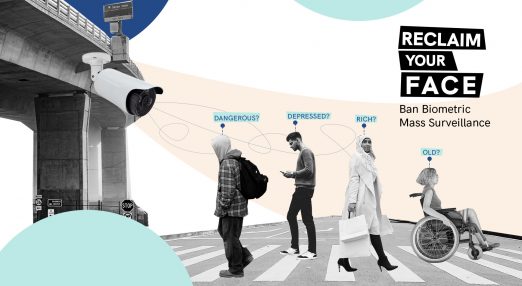
Mass facial recognition is the apparatus of police states and must be regulated
Scientists have shown the inherent structural discrimination embedded in biometric systems. Facial analysis algorithms consistently judge black faces to be angrier and more threatening than white faces. We also know that biometric systems are designed with a purportedly “neutral” face and body in mind, which can exclude people with disabilities and anybody that does not conform to an arbitrary norm.
Read more
-
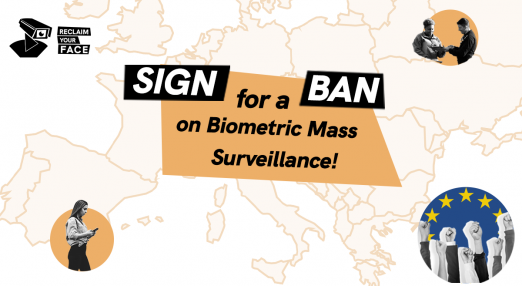
New ECI calls Europeans to stand together for a future free from harmful biometric mass surveillance
The Reclaim Your Face coalition launches a European Citizens’ Initiative (ECI) today to ban biometric mass surveillance. The ECI represents the voice of those who oppose a dystopian future and instead want a future in which choices are made by us, not by algorithms. The initiative needs to collect 1 million signatures in at least 7 EU countries during the next year.
Read more
-
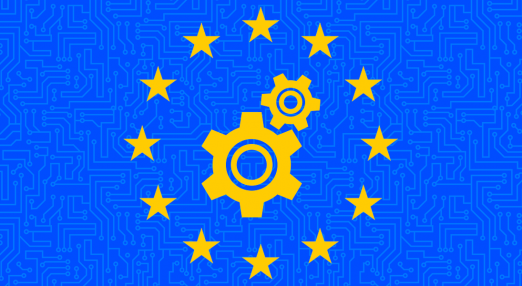
The Digital Markets Act must do more to protect end users’ rights
As the European Commission sets out plans for a Digital Markets Act, EDRi calls for the protection of users’ human rights to be at the centre of plans to regulate the role platform gatekeepers play in the future of Europe’s digital environment.
Read more
-

We want more than “symbolic” gestures in response to discriminatory algorithms
In an escalating scandal over child benefits, over 26.000 families were wrongly accused of fraud by the Dutch tax authority. Families were forced to repay tens of thousands of euros, resulting in unemployment, divorces, and families losing their homes. EDRi member Bits of Freedom reveals the discriminatory algorithms used by the authority and urges the government to ban their use and develop legislation on Artificial Intelligence.
Read more
-
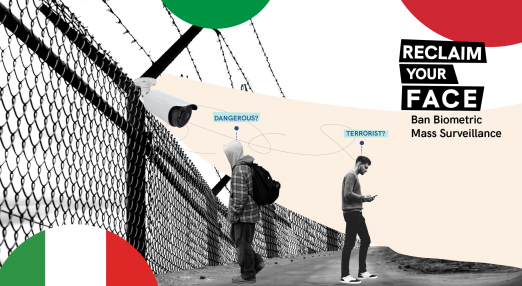
Chilling use of face recognition at Italian borders shows why we must ban biometric mass surveillance
As part of Reclaim Your Face's investigation in rights-violating deployments of biometric mass surveillance, EDRi member Hermes Center explains how the Italian Police are deploying dehumanising biometric systems against people at Italy’s border.
Read more
-

The companies in control of our secret identities
EDRi member Privacy International published a research on ad tech companies' data collection practices which are employed to create an assumed picture of you. The study shows that the profiles created for the data subjects are based on information pieced together from incomplete data and using marketing algorithms. Hence, this data forms an uncanny picture of yourself, one that you may not have voluntarily revealed, a digital shadow over which you have very little practical control.
Read more
